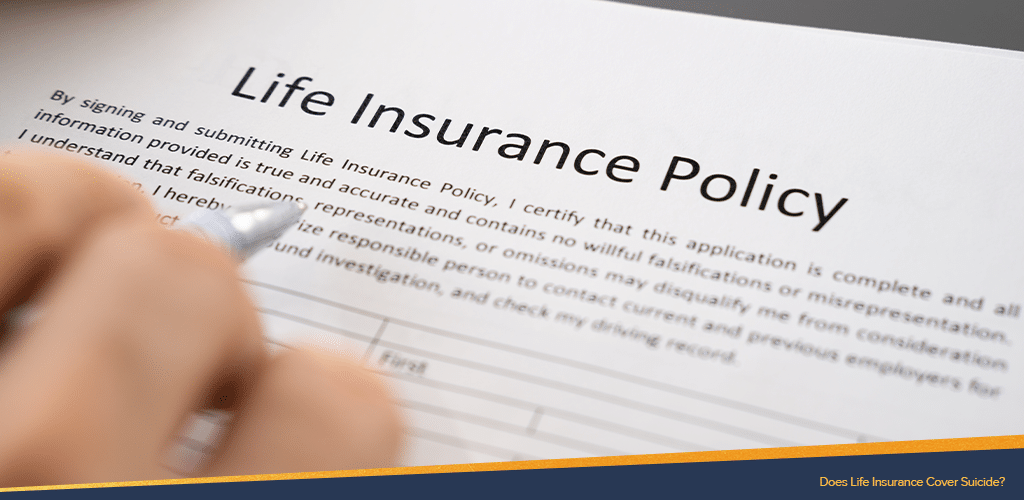
Life insurance policies can be complicated, especially when sensitive topics like suicide arise. Many beneficiaries are uncertain about the coverage rules and worry their claims might be denied.
Understanding precisely how these situations are handled is crucial. So, does life insurance cover suicide?
Key Takeaways
- Suicide and Life Insurance: Claims can be denied if suicide occurs within the policy’s waiting or contestability period (1-2 years) or due to fraud.
- Mental Health Disclosure: Failing to disclose mental health conditions may lead to claim denial if suicide is linked to an undisclosed issue.
- Legal Protections: Laws like ERISA and Texas Insurance Code protect against unfair claim denials. Seek legal advice if a claim is wrongfully denied.
- Claim Denial Actions: If a claim is denied, request a detailed explanation, review policy terms, and consult an attorney for guidance.
- Legal Support: If faced with an unfair claim denial, contact a skilled law firm like Daly & Black for expert legal representation and to recover your rightful benefits.
Understanding Life Insurance and Suicide: Coverage Explained
Whether a life insurance claim can be denied on the basis of suicide typically hinges on specific policy terms, waiting periods, and the contestability period. Many policies have clauses that allow payout if suicide occurs after a designated waiting period, usually between one to two years- but this depends on the policy.
However, suicide within this initial period may result in a denied claim. It’s vital to carefully review policy details to understand the specifics related to suicide and life insurance.
Common scenarios that could lead to a denied life insurance claim involving suicide include:
- Suicide occurring within the policy’s designated suicide waiting period.
- Discovery of fraudulent or intentionally misleading information on the life insurance application.
- Explicit policy exclusions specifically addressing suicide or self-inflicted harm.
- Suicide occurring during the contestability period, where insurers actively review and potentially dispute claims.
Mental Health and Its Impact on Life Insurance Coverage
Mental health can significantly influence life insurance coverage and premiums. Applicants diagnosed with mental health conditions such as depression, anxiety, or bipolar disorder may face higher premiums or additional policy conditions due to perceived risks.
Failure to disclose an official mental health diagnosis during the application process can result in serious consequences. If suicide occurs later and can be directly linked to an undisclosed mental health issue, the insurer may deny the claim, citing fraudulent or incomplete information provided at the policy’s inception.
It’s essential to be transparent about mental health history to ensure accurate policy coverage and avoid potential denial of claims.
Mental illness is a growing issue in the USA, should you feel the need to speak to someone in relation to your mental health do not hesitate to contact 988 lifeline.
How the Law Protects You From Unfair Claim Denials
Federal and state laws protect consumers from unfair denials in life insurance claims. At the federal level, the Employee Retirement Income Security Act (ERISA) regulates group life insurance plans, providing beneficiaries with rights to challenge wrongful denials.
Texas Insurance Code §542.058 protects policyholders by requiring insurers to promptly pay claims or provide valid reasons for denial.
In Louisiana, Revised Statutes §22:1821 outlines insurers’ obligations to settle claims fairly and promptly.
These, among many more, are some of the protections afforded to beneficiaries within the context of unfair claim denials. Educating yourself on how you are protected under the law can go a long way in ensuring you don’t fall victim to bad faith insurance practices.
Should you be faced with an unfair claim denial it is wise to seek legal counsel to ensure your best chance of a positive outcome.
Steps Beneficiaries Should Take After a Suicide-Related Claim Denial
Facing a denied life insurance claim after losing a loved one to suicide is emotionally and financially challenging.
If a claim is denied, beneficiaries should:
- Request a detailed explanation from the insurance company.
- Carefully review policy terms and exclusions.
- Consult with an experienced insurance attorney, like the legal team at Daly & Black, who can help you recover your claim should it be unfairly denied.
Does Suicide Void Life Insurance? Common Myths Debunked
A common misconception is that suicide automatically voids life insurance policies. This is incorrect. Suicide itself does not “void” an existing policy but can result in a claim denial under specific circumstances described above.
The distinction between a “voided” policy and a denied claim is crucial: a voided policy typically refers to cancellation due to fraud or misrepresentation, while a denied claim occurs when specific terms or conditions have not been met.
Resources and Charities for Suicide Prevention
If you or someone you love is struggling, support is available. Beneficiaries affected by suicide often look for ways to contribute positively.
Reputable charities dedicated to suicide prevention include:
- American Foundation for Suicide Prevention
- 988 Suicide & Crisis Lifeline
- Suicide Awareness Voices of Education
Supporting these organizations helps provide essential resources and assistance to those struggling and affected families.
Navigating Life Insurance Claims After Suicide: Protecting Your Rights

The question, “does life insurance cover suicide?” depends greatly on specific policy terms, waiting periods, and contestability clauses. Beneficiaries facing denial after a suicide-related claim should seek expert legal advice immediately.
Daly & Black’s experienced attorneys are ready to help navigate these challenging situations compassionately and effectively.
If you’ve had a life insurance claim unfairly denied, contact Daly & Black today to discuss your options and ensure you receive the benefits you deserve.
FAQ Section
Q: Can a life insurance claim be denied for suicide?
A: Yes, claims can be denied if suicide occurs within policy-defined waiting or contestability periods.
Q: What happens if suicide occurs within the contestability period?
A: Typically, insurers return the premiums paid instead of the full death benefit if suicide occurs during this period.
Q: What is the best charity for suicide prevention?
A: Top charities include the American Foundation for Suicide Prevention, National Suicide Prevention Lifeline, and Suicide Awareness Voices of Education.
